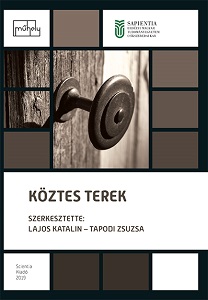A kiváltságos hozzáférés tulajdonításának fejlődése kétnyelvű óvodásoknál
The Development of Privileged Access Attribution in Bilingual Preschoolers
Author(s): Krisztina Bartha
Subject(s): Social Sciences, Education
Published by: Scientia Kiadó
Keywords: bilingualism; privileged access attribution; development;
Summary/Abstract: Privileged access to mental states is the cognitive process that allows a person to access his/her own mental structures. The attribution of privileged access implies that, in interaction with others, we assume that the other person can access and express their own mental states (see Kiss–Jakab 2014). My research questions are: when does the ability to attribute privileged access appear in bilingual preschool children and how does it develop? Do bilingual children benefit from their bilingualism in this cognitive ability compared to their monolingual peers? According to my hypothesis, early, simultaneous bilingual children develop this ability sooner than monolingual and early but successive bilinguals. 50 preschool children between the age of 4 and 6 participated in this experiment. The children were divided into two groups according to whether they were successive or simultaneous bilinguals. Using the method developed by Bartsch and Wellman (1989), I investigated the children’s ability to attribute privileged access by listening to three short, everyday stories and then responding to the questions asked by the experimenter regarding the mental states of the characters in the story. The results support my hypothesis that the attribution of privileged access to cognitive abilities also develops faster in bilingual children.
Book: Köztes terek (2019. április 26–27., Csíkszereda)
- Page Range: 285-297
- Page Count: 13
- Publication Year: 2020
- Language: Hungarian
- Content File-PDF

